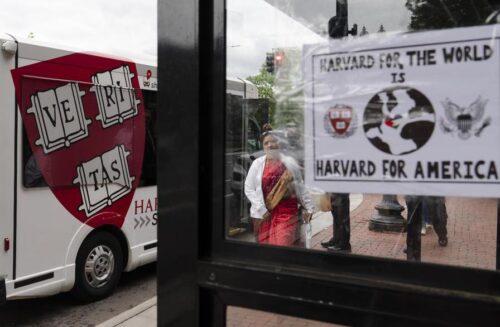Jonathan Karush runs two companies — one that does work for Josh Kraft’s Boston mayoral campaign, and one that does work for the super PAC that is aligned with Kraft.
Does that amount to the kind of coordination that is forbidden under Massachusetts campaign finance law? Not according to Karush, who insists there is “a firewall’’ between what he does for the campaign and what his other company does for the PAC. If what Karush describes is a firewall, call 911 — or better yet, the Office of Campaign and Political Finance — because it looks a lot like a web of common interests designed to give the illusion of the separation required under the law.
Karush told me via email that as president of Liberty Concepts Inc., he built and supports the website for the Kraft campaign in what he describes as a “nonstrategic capacity.’’ Keyser Public Strategies, which is advising Kraft, also lists Karush on its website as a team member. But he’s not an employee, according to Eileen O’Connor, a Kraft spokesperson and partner in the consulting company.
Meanwhile, Karush told me he is also principal owner of CP Campaigns LLC, which performs digital ad buying work for Your City Your Future, the super PAC that is pouring millions into attacks on Mayor Michelle Wu. But Karush said that someone else does the work for the super PAC — work that, according to reports filed with the Office of Campaign and Political Finance, has so far earned $425,000 for a company that was formed on March 5.
“I personally have no contact with the PAC in accordance with the firewall ensuring there is no coordination, even though I have ownership interest in CP Campaigns,’’ Karush told me. O’Connor also said “there are firewalls in place according to law.’’
Whether that passes the prohibition against coordinated expenditures outlined in an interpretive bulletin issued by OCPF is a legal question that deserves to be asked. Liberty Concepts Inc. and CP Campaigns LLC are separate entities, for sure. But if the same person heads both, how much independence is there?
According to the regulations issued by the Office of Campaign and Political Finance that govern political committees, two committees are considered to be the same if they have the same or “substantially the same’’ people as principal officers or members. The use of shared administrative resources, including, but not limited to, office equipment or personnel by the political committees also raises a presumption they are the same — a presumption that can be rebutted.
Those regulations recognize the reality that political committees and super PACs “might try to work in tandem,’’ said Patrick Hanley, a former assistant attorney general now in private practice, who as outside counsel to the State Police Association of Massachusetts has advised that union on campaign finance law. “The regulations are there to look at what they’re actually doing, who’s actually in charge? Are they working together? Are they consulting with each other? Are they doing favors for each other?’’
Why does this matter? Unlike a campaign committee, which has a $1,000 limit on individual contributions per year, a super PAC can raise unlimited amounts of money from contributors. The super PAC aligned with Kraft is already spending some $2.4 million on ads, billboards, and text messages attacking Wu.
Contributors to the super PAC include New Balance Chairman Jim Davis, who gave $1 million, and Michael Rubin, the founder and chief executive of sports merchandising company Fanatics, who gave $1 million and is considered a friend and associate of New England Patriots owner Robert Kraft, Josh Kraft’s father.
Josh Kraft is also loaning his campaign $2 million. Meanwhile, he acknowledges that his father is probably encouraging his network of wealthy friends and business owners to support him. As the Globe previously reported, the chairman and several top attorneys of the prominent law firm Paul, Weiss, Rifkind, Wharton & Garrison LLP each donated $1,000 to Kraft’s campaign after Robert Kraft reportedly helped broker a meeting between the firm and the Trump administration.
There’s no law against helping a son who is running for political office by encouraging friends to contribute to the cause. And there’s no law against a candidate putting his own money into a campaign. But there is campaign finance law that is supposed to stop coordination between a super PAC and a campaign committee. The announcement of a big negative ad buy by the super PAC, followed by Josh Kraft’s announcement that he will put $2 million of his own money into the campaign, sounds like an effort to promote the idea that Kraft has the money, if not the message, to take on Wu — and that also sounds like coordination.
If a violation is found, a campaign can be fined, and a super PAC may have to convert to a regular campaign committee, subject to contribution limits.
Between the campaign committee and the super PAC, Josh Kraft seems to be pushing the envelope, all in the quest for viability. But you can’t buy that. You have to earn it.
Joan Vennochi is a Globe columnist. She can be reached at joan.vennochi@globe.com. Follow her @joan_vennochi.

